Odile Papini
A General Modifier-based Framework for Inconsistency-Tolerant Query Answering
Feb 18, 2016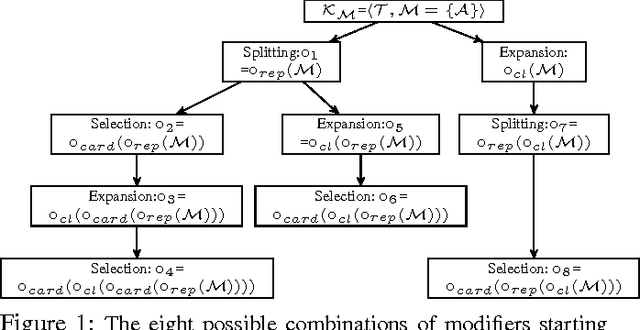
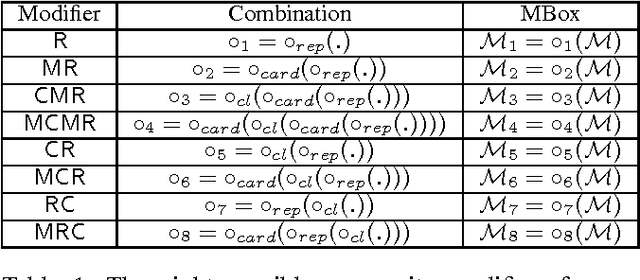

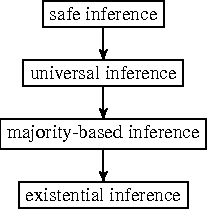
Abstract:We propose a general framework for inconsistency-tolerant query answering within existential rule setting. This framework unifies the main semantics proposed by the state of art and introduces new ones based on cardinality and majority principles. It relies on two key notions: modifiers and inference strategies. An inconsistency-tolerant semantics is seen as a composite modifier plus an inference strategy. We compare the obtained semantics from a productivity point of view.
Belief merging within fragments of propositional logic
Apr 25, 2014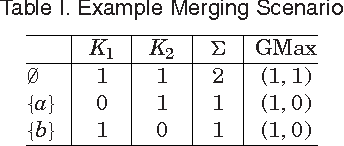
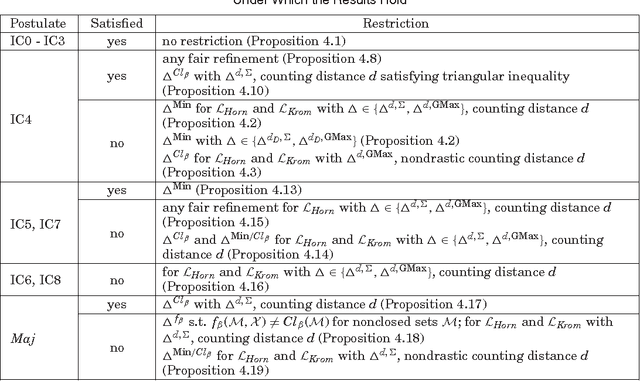

Abstract:Recently, belief change within the framework of fragments of propositional logic has gained increasing attention. Previous works focused on belief contraction and belief revision on the Horn fragment. However, the problem of belief merging within fragments of propositional logic has been neglected so far. This paper presents a general approach to define new merging operators derived from existing ones such that the result of merging remains in the fragment under consideration. Our approach is not limited to the case of Horn fragment but applicable to any fragment of propositional logic characterized by a closure property on the sets of models of its formulae. We study the logical properties of the proposed operators in terms of satisfaction of merging postulates, considering in particular distance-based merging operators for Horn and Krom fragments.
A possibilistic handling of partially ordered information
Oct 19, 2012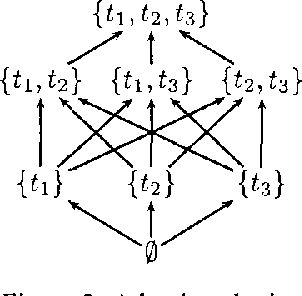
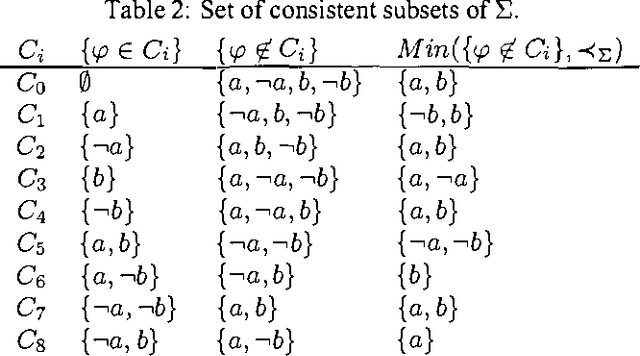
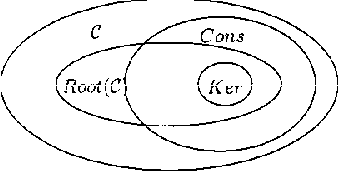

Abstract:In a standard possibilistic logic, prioritized information are encoded by means of weighted knowledge base. This paper proposes an extension of possibilistic logic for dealing with partially ordered information. We Show that all basic notions of standard possibilitic logic (sumbsumption, syntactic and semantic inference, etc.) have natural couterparts when dealing with partially ordered information. We also propose an algorithm which computes possibilistic conclusions of a partial knowledge base of a partially ordered knowlege base.
Revising Partially Ordered Beliefs
Oct 03, 2002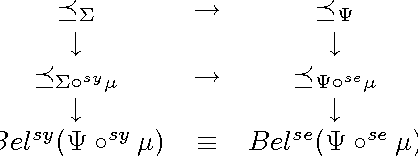
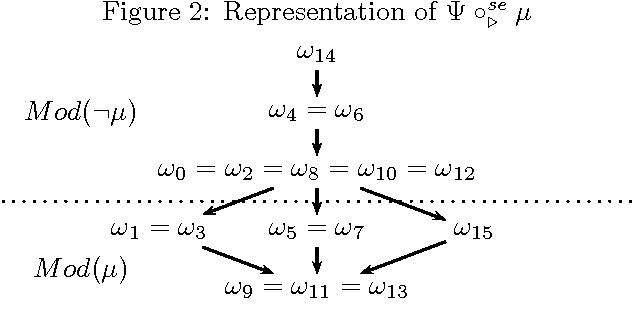
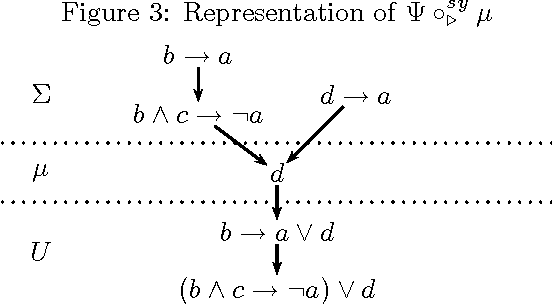

Abstract:This paper deals with the revision of partially ordered beliefs. It proposes a semantic representation of epistemic states by partial pre-orders on interpretations and a syntactic representation by partially ordered belief bases. Two revision operations, the revision stemming from the history of observations and the possibilistic revision, defined when the epistemic state is represented by a total pre-order, are generalized, at a semantic level, to the case of a partial pre-order on interpretations, and at a syntactic level, to the case of a partially ordered belief base. The equivalence between the two representations is shown for the two revision operations.
* figures made with the pstricks latex packages
 Add to Chrome
Add to Chrome Add to Firefox
Add to Firefox Add to Edge
Add to Edge